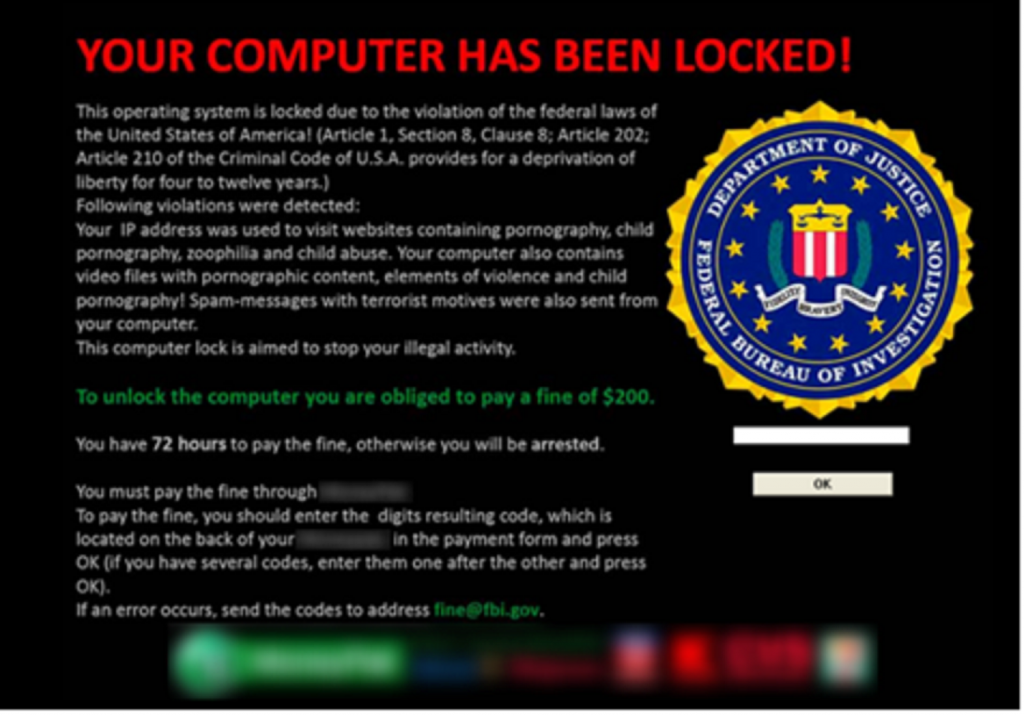
Imagine if your computer looked like this the next time you booted it up. This is one example of the effects of ransomware on a computer. Ransomware is a type of malware that blocks or encrypts files on a target’s computer unless they pay a ransom to the attacker to unlock it. Many targets are desperate to retrieve their files, and will pay the ransom without question, which is why the attack is so effective. Paying of the fine does not guarantee that the files will be restored, however, and attackers still have access to the target’s computer even after it has been unlocked.
Obviously, no one will consciously download a file that says it will lock up their computer, so how does ransomware spread? Ransomware spreads through means such as phishing emails, malicious ad pages, and even piggybacking on other downloads. It also spreads much more easily if a network has already been breached by a Trojan or other means.
Ransomware tools have been used to extort millions of dollars from targets ranging from independent users to government agencies. Therefore it is very important to know how to protect yourself against it. Here are a few tips to protect yourself from ransomware.
- Do regular backups of data onto external devices whenever possible. This will allow you to reset your computer without losing data, eliminating the ransomware.
- Update programs regularly and use an antivirus program. This allows your computer to patch vulnerabilities as well as protect against some, but not all, ransomware that gets in.
- Be conscious of suspicious emails, ads, or websites. If an email or website looks fake, never click on it. A simple click can give skilled attackers access to your computer.
- Never download files or programs from unknown sources. These programs can have malware installed at the same time.
Following these tips helps to eliminate your risk to acquiring ransomware. Hopefully this article will help you to protect yourself against this threat.
Author
This article was written by Afshan Chandani, Intern with Secure Guard Consulting, LLC, a cybersecurity / IT audit and consulting company.
